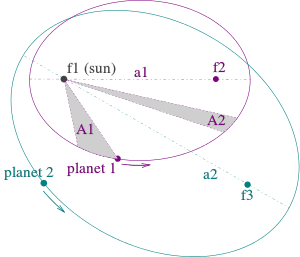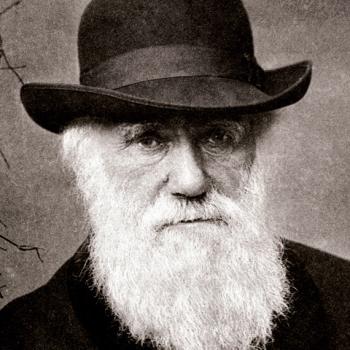
(Image from Wikimedia CC)
A small sampling of additional passages that I marked during my reading of John Polkinghorne, Belief in God in an Age of Science (New Haven and London: Yale University Press, 1998):
The history of the interaction between science and theology, says Professor Polkinghorne,
is not susceptible to simple characterisation, either in terms of conflict or of harmony. (76)
At the moment the biological world, particularly in its members who work with molecules rather than organisms, displays notable hostility to religion at least in the writings offered to the general educated public. (It is a curious cultural fact about our society that, though it would be considered improper for a believing scientist to exhibit that belief explicitly when writing for the lay public about science itself — as opposed to writing books explicitly about science and religion — it is apparently perfectly all right for the atheist to press unbelief in a similar scientific context.) (78-79)
Sir John sees two principal reasons for the current hostility of some biologists toward theistic belief.
One is that biologists see a much more perplexing, disorderly, and painful view. of reality than is presented by the austere and beautiful order of fundamental physics. (79)
The second is that
Biology, through the unravelling of the molecular basis of genetics, has scored an impressive victory, comparable to physics’ earlier elucidation of the motions of the solar system through the operation of universal gravity. (79)
The post-Newtonian generation was intoxicated with the apparent success of universal mechanism and wrote books boldly proclaiming that man is a machine. It seems to me that a similar intellectual inebriation influences some biologists, only too read to assert that we are nothing more than genetic survival machines. . . . [F]or the moment many of its [biology’s] adherents have succumbed to an ill-judged reductionist triumphalism. However, the madness is not universal. (79-80)
Finally, I thought this statement of faith, coming as it does from an eminent English physicist and priest, very interesting:
The God and Father of our Lord Jesus Christ is far from being the God of Spinoza, deus sive natura, a cypher for the rational order of the universe. That was Einstein’s God, but it is certainly not mine. (86).
[The Latin phrase deus sive natura translates as “god or nature,” meaning that the two terms are interchangeable — for Spinoza, at least.]
Posted from Seaside, Oregon












